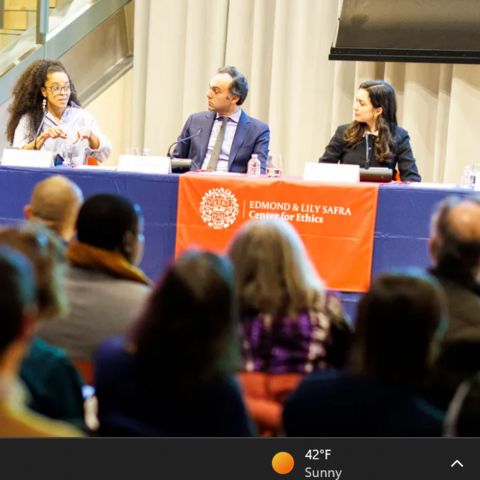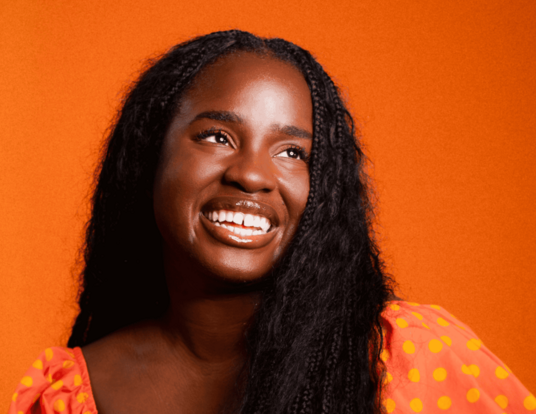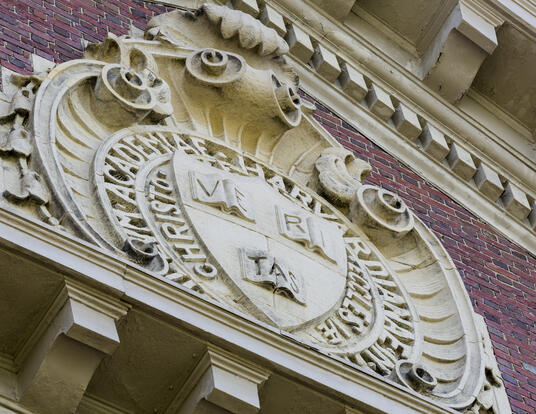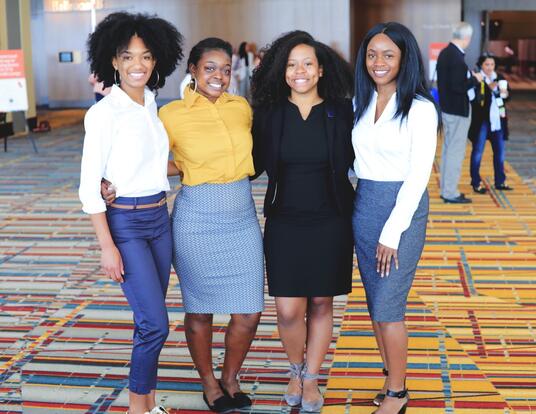Be Well: In Community, In Courage
Celebrating pride in the face of adversity
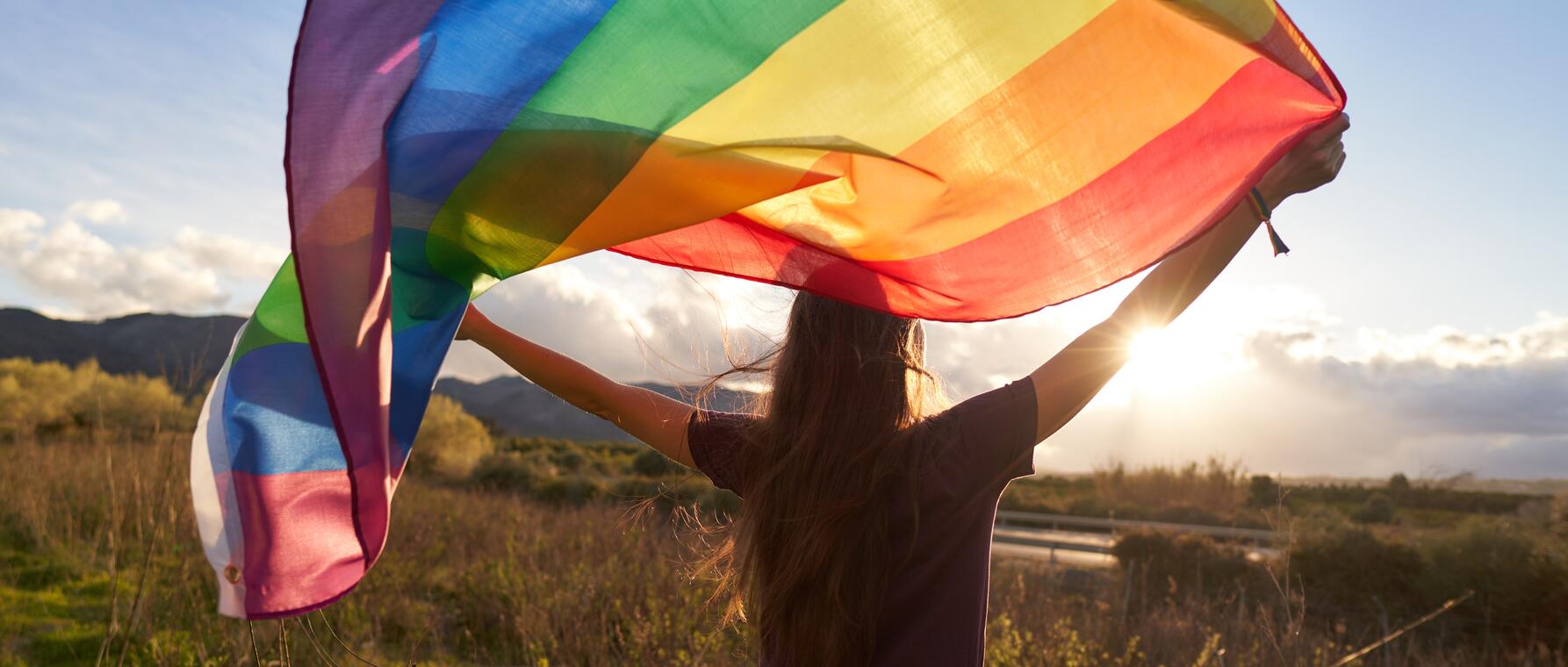
June is Pride Month across the United States, an integral social-activist ritual that brings people together from all walks of life to affirm support for the LGBTQ+ community. This year, the celebration of Pride at Harvard exists alongside a rising tide of political and social stressors. From anti-trans legislation and book bans to reductions in diversity, equity, and inclusion funding, LGBTQ+ students are feeling the pressure. To address these nuances, I consulted with two of my colleagues at Harvard University Health Services’ Counseling and Mental Health Service (CAMHS).
The Changing Landscape: What Students Are Facing Now
Josué Miranda Quiles, LICSW (him/él), a therapist and facilitator of the Men’s Queer Support Group, observes that many students are struggling with a deep sense of uncertainty. "For LGBTQ students, the journey toward self-discovery is often intertwined with external pressures,” he says. “This can create a profound sense of instability—about identity, future employment, even financial stability. The need to prove oneself in a world that may not fully accept diverse identities can be overwhelming.”
Students have expressed fear over the political rollback of LGBTQ+ rights and losing access to gender-affirming care or supportive spaces. Others worry about where they’ll live after graduation:“What if I have to move somewhere I’m not safe?” is a common refrain among international students, according to Quiles.
Some students are even choosing to retreat—to go “back in the closet” or pause their gender transition to protect themselves. While these decisions may be made in the name of safety, they can also result in dysphoria, isolation, and a diminished sense of self.
Rebecca Nelson, LMHC (she/hers), who facilitates the Women’s Queer Group, notes how these broader issues manifest in everyday student life. “Our group talks about how to navigate queer identity in classrooms and professional settings, cope with breakups, and find community. There’s often uncertainty about whether it’s safe or wise to be out in different contexts, which adds another layer of emotional labor.”
The group also explores the power of joy and connection as acts of resilience—like dancing, joining LGBTQ+ social events, or getting involved in queer-friendly activities beyond the Harvard campus.
Strategies for Wellbeing
Despite the challenges, students are finding ways to care for their mental health and build inner strength. Here are a few key practices offered by Quiles and Nelson that may support LGBTQ+ students in today’s climate:
- Cultivate community: Join student orgs, support groups, or interest-based LGBTQ+ clubs (like hiking groups or rec leagues). Queer Ed, LGBTQ@GSAS, and other campus programs offer a space to connect with others who share your values and experiences.
- Practice self-compassion: It's okay not to have all the answers. Uncertainty is a natural part of growth. Give yourself permission to feel your feelings without judgment.
- Focus on small victories: Small actions—dancing, a board game night, seeing a queer-affirming film—can provide emotional uplift and a sense of control.
- Break down goals: Whether personal or academic, focusing on achievable steps can counter the paralysis that sometimes comes with fear about the future.
- Reach out for mental health support: CAMHS offers individual counseling and support groups focused on LGBTQ+ issues. Talking to a mental health provider can help you navigate stress, anxiety, or identity-related challenges.
- Advocate where you can: From speaking up in the classroom to joining advocacy efforts, reclaiming your voice can offer empowerment, even in uncertain times.
“Building resilience doesn’t eliminate the challenges you face,” Quiles adds, “but it allows you to approach them with more confidence and clarity.” He and Nelson also recommend the following resources and support for Harvard students:
- CAMHS Cares: Need to talk? Make an appointment or call the CAMHS Cares Line at 617-495-2042 for 24/7 support from a licensed counselor. Learn more.
- Harvard Griffin GSAS Office of Equity, Diversity, Inclusion & Belonging (EDIB): Contact Alicja Majer, associate director of equity, diversity, inclusion & belonging to learn about trans+ spaces and group outings. Connect with LGBTQ+ student groups, peer mentoring programs, and community events. Visit Harvard Griffin GSAS EDIB.
- Campus Affinity Groups and Programs: Learn about affinity groups by visiting the Engage and CAMHS calendars for current programs, such as LGBTQ@GSAS, QueerEd, LGBTQ+ student and alumni mixers and queer-inclusive recreation and social groups.
You're Not Alone
Pride is about more than parades—it’s about presence: being present with ourselves, our histories, and each other. It’s about creating spaces where we can be fully seen, affirmed, and supported, even in the face of adversity. We acknowledge that this Pride Month may feel heavier than others. And we also honor the strength, brilliance, and courage of LGBTQ+ students and allies who continue to build community, seek joy, and advocate for justice.
If you have pressing concerns—academic or personal—and need resources or support, stop by the Office of Student Services in Room B-2 of the Student Center at Harvard Griffin GSAS.
Get the Latest Updates
Join Our Newsletter
Subscribe to Colloquy Podcast
Simplecast


